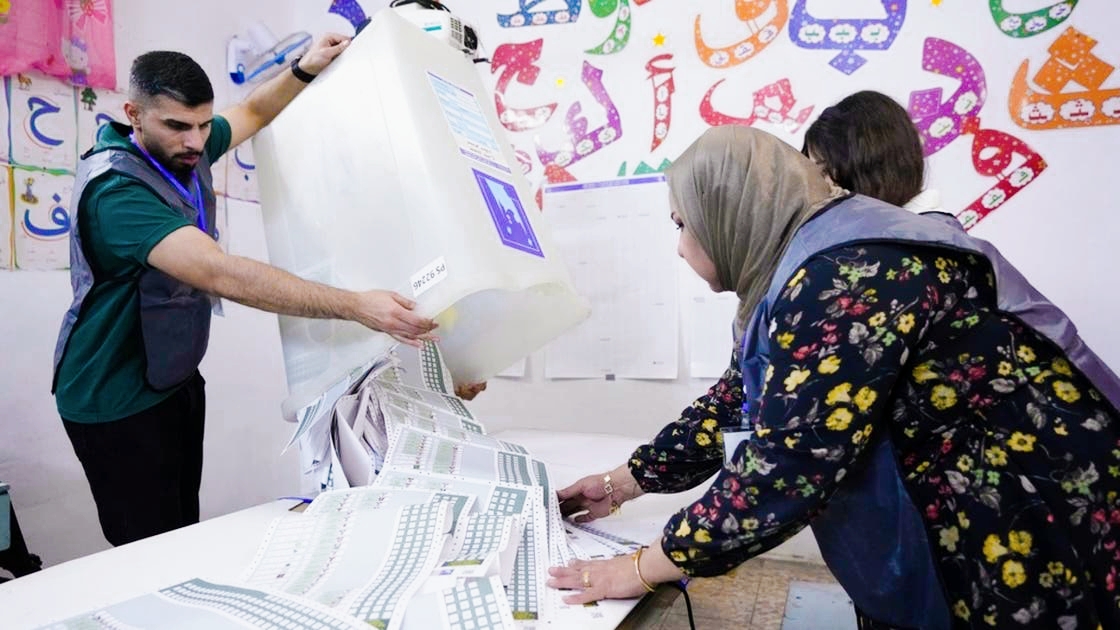Iraq Faces 101 Election Complaints as Coalition Led by Al-Sudani Takes Lead in Parliament

Jumana Al-Ghalai, the official spokesperson for Iraq's Independent Electoral Commission, announced on Thursday that the commission has received 101 complaints related to the legislative elections held on Tuesday.
Al-Ghalai confirmed in a press statement that these complaints include 44 concerning special voting for military and security forces, as well as displaced individuals, and 57 related to the general voting process. She noted that all complaints are currently "under classification by the commission."
The commission will categorize these complaints based on their severity into three types:
Green, Yellow, and Red.
Green and Yellow complaints pertain to the electoral process within or around voting centers and do not impact the overall results.
Red complaints _ if verified _ necessitate a recount and review of ballots in the relevant areas and could potentially affect election outcomes.
The commission is expected to classify these complaints in the coming days, with judicial authorities set to announce their final position within 10 days.
In related news, the Independent Electoral Commission announced on Wednesday that the Reconstruction and Development Coalition, led by Prime Minister Mohammed Shia al-Sudani, secured the top position in the parliamentary elections, receiving 1,317,346 votes and becoming the largest bloc in the new parliament.
In his first remarks following the preliminary results, al-Sudani stated that his coalition "is open to all national forces without exception and will work with a spirit of objective and legal responsibility that honors the sacrifices of the Iraqi people."
The Iraqi judiciary emphasized the importance of swift dialogues among winning blocs to facilitate government formation, highlighting that the constitutional steps following the ratification of results include:
1 _ The commission will submit a request to President Abdul Latif Jamal Rashid to convene the new parliament within 15 days.
2 _ The first session will be held under the leadership of the oldest member, initiating the nomination process for the presidency of the parliament and its two vice-presidents.
3 _ A new president of the country is to be elected within 30 days.
4 _ The largest bloc will be tasked with nominating a candidate to form the government within 15 days and presenting the ministerial cabinet to parliament within 30 days.
Sources clarified that these constitutional timelines can typically extend up to four months but may be shortened to expedite government formation, as seen in previous cycles.
